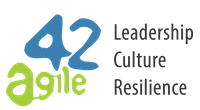How To Become A Scrum Master
Scrum has been proven to be a powerful framework for managing complex projects and delivering valuable products. As companies have become more Agile, the role of the Scrum Master has also become more important. If you’re intrigued by the idea of leading teams, fostering collaboration, and enabling seamless project delivery, becoming a Scrum Master could be the perfect path for you. In this complete guide, we’ll break down the steps on the path to becoming a Scrum Master and give you valuable insights to help you make an informed decision.
Contents
- What Does A Scrum Master Do
- Scrum Master Responsibilities
- Scrum Master Skills
- Steps to Become a Scrum Master
- Scrum Master Certification Cost
- How Long Does It Take To Become A Scrum Master
- How To Become A Scrum Master With No Experience
- Scrum Master Salary
- How To Land Your First Scrum Master Role
- What Are The Certifying Bodies?
What Does a Scrum Master Do?
A Scrum Master is a servant leader who helps teams adopt and follow the Scrum framework. They do this by:
- Facilitating Scrum events: This includes leading and supporting ceremonies such as Sprint Planning, Daily Standups, Sprint Reviews, and Sprint Retrospectives.
- Removing obstacles: The Scrum Master helps the team to identify and remove anything that is preventing the team from being successful, such as technical problems, lack of resources, or unclear requirements.
- Coaching and mentoring: The Scrum Master provides guidance to the team and stakeholders on how to best adopt Scrum and create a collaborative environment.
- Promoting continuous improvement: The Scrum Master encourages the team to reflect on their processes and identify ways to improve.
Recommended e-learning: Learn to run better Scrum Events with our Facilitating Scrum online course
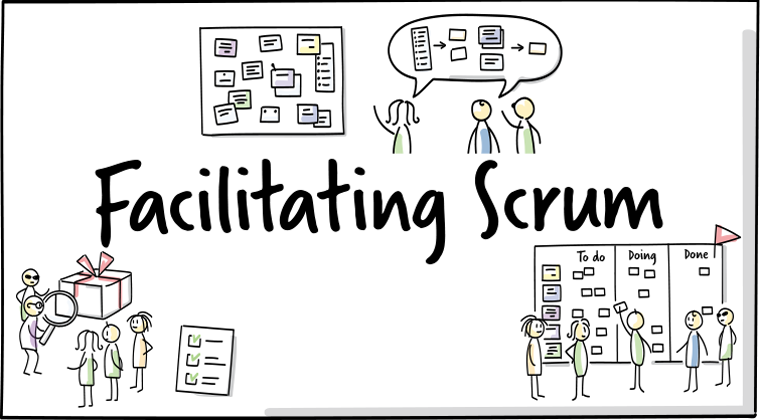
Facilitating Scrum
This online course will teach you to run the Scrum Events and Backlog Refinement effectively, and create a Definition of Done and a Working Agreement.
The course is also available in the following languages/countries:
🇿🇦 South African Rand
🇹🇷 Turkish Lira
🇧🇷 Brazilian Real
In addition to these specific responsibilities, a Scrum Master also plays a more general role as a champion of Agile development. They help to spread the word about Scrum and its benefits, and they work to create a culture of continuous improvement within the organization.
Scrum Master Responsibilities
The Scrum Master is a key role in any Agile team. They play a vital role in helping the team succeed and achieve its goals. Here are some specific examples of how a Scrum Master might fulfill their responsibilities:
- During a Sprint Planning meeting, the Scrum Master might help the team to define the Sprint Goal and to identify the tasks that need to be completed in order to achieve that goal by doing ….
- During a Daily Standup meeting, the Scrum Master might help the team to identify any obstacles that are preventing them from making progress towards their Sprint Goal.
- During a Sprint Review meeting, the Scrum Master might help the team to demonstrate the work that they have completed and to get feedback from stakeholders.
- During a Sprint Retrospective meeting, the Scrum Master might help the team to identify ways to improve their processes.
Scrum Master Skills
The Scrum Master is a versatile role that requires a variety of skills, including:
- Strong communication and facilitation skills
- The ability to work independently and as part of a team
- A deep understanding of Scrum principles and practices
- The ability to identify and remove obstacles
- The ability to coach and mentor others
Steps to Become a Scrum Master
Becoming a Scrum Master is a journey that requires a combination of education, experience, and dedication to agile principles. Here are some steps you can take to get started:
- Gain an understanding of Scrum. The first step is to learn about the Scrum framework, its values and the Agile Manifesto. There are many resources available to help you do this, such as books, articles, and online Scrum courses.
- Get formal training. Once you have a basic understanding of Scrum, it’s helpful to get formal training from a reputable organization. This will give you the opportunity to learn from experienced practitioners and get hands-on experience with practices.
- Obtain certification. There are a number of Scrum certifications available, such as the Certified ScrumMaster (CSM) certification offered by the Scrum Alliance. Earning a certification can demonstrate your commitment to Agile principles and help you advance your career.
- Gain experience. The best way to learn Scrum is by doing. Get involved in Scrum projects and take on Scrum Master responsibilities. This will give you the opportunity to apply your knowledge and skills in a real-world setting.
- Embrace continuous learning. The agile world is constantly evolving, so it’s important to stay up-to-date with the latest trends. Attend conferences, workshops, webinars, and online courses to learn about new practices and methodologies.
- Renew your certification. Most Scrum certifications require renewal every two years. To maintain your certification, you’ll need to demonstrate that you’re still actively involved in the agile community and that you’re keeping your skills up-to-date.
Becoming a Scrum Master is a challenging but rewarding journey. By following these steps, you can set yourself up for success.
Scrum Master Certification Cost
The cost of Scrum Master certification can vary depending on the training provider and location. On average, a CSM course can range from $800 to $1200, including the cost of the exam. Nevertheless, investing in Scrum Master certification is an investment in your own career growth.
Be cautious about choosing the most affordable option. If the training is not by a reputable organization and certified through a recogniszed body, it is not worth the modest saving. Do your research, read reviews, and make sure the certification is globally recognised.
How Long Does It Take to Become a Scrum Master?
The timeline to become a Scrum Master varies depending on your existing knowledge, availability, and dedication. Completing a CSM course usually takes two days, followed by the certification exam. Afterward, gaining practical experience and refining your skills can take several months, years or a lifetime.
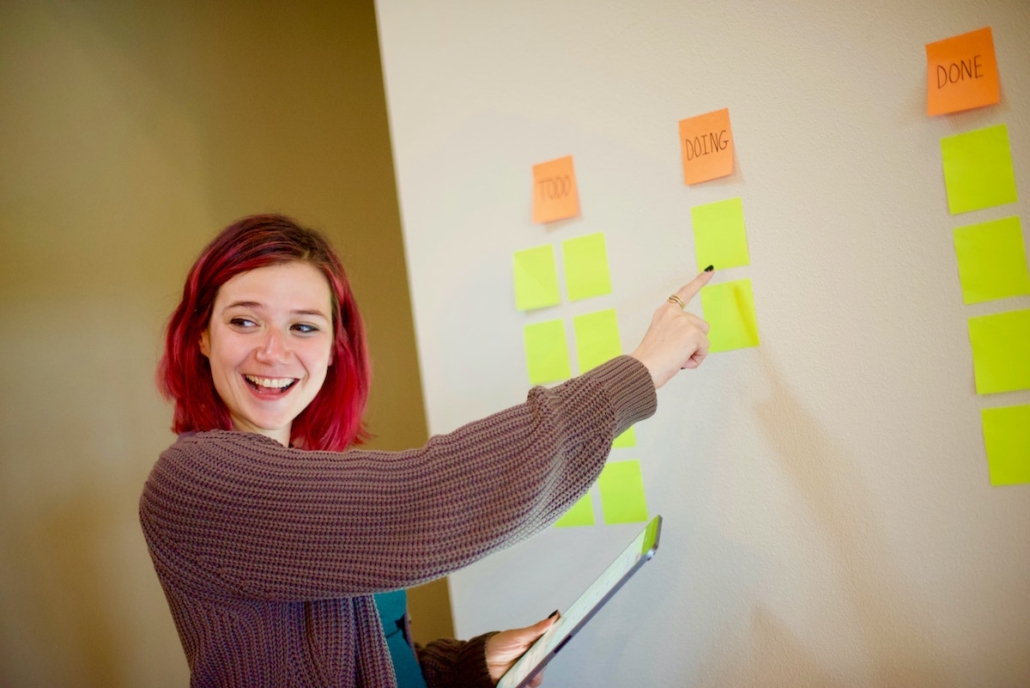
How to Become a Scrum Master With No Experience
If you’re new to Scrum, don’t be discouraged. Start by building a strong foundation through training and certification. Seek opportunities to join Scrum teams and their events, even as an observer, to gain knowledge and learn from experienced Scrum Masters.
Scrum Master Salary
The salary for a Scrum Master varies depending on a number of factors, including the following:
- The cost structure of your country: In general, Scrum Masters in more expensive countries will earn more than those in less expensive countries.
- Whether you are an internal coach or a consultant: Internal Scrum Masters typically earn a fixed salary, while consultant Scrum Masters may earn a higher salary with the potential for more earnings through commissions or bonuses.
- Your level of experience, capabilities, and credibility: More experienced and skilled Scrum Masters will typically earn more than those with less experience.
- The Agile certifications you hold: Scrum Masters with agile certifications may be able to command a higher salary, as these certifications demonstrate their knowledge and skills.
- The company culture: Some companies value the role of the Scrum Master more than others, and this may be reflected in the salary they offer.
As a rule of thumb, a Scrum Master can expect to earn a salary similar to that of a Senior Project Manager or development manager. However, the actual salary will vary depending on the factors listed above. According to industry reports from Europe and the United States, the average annual salary for a Scrum Master ranges from $60,000 to $120,000.
Here are some additional tips for earning a higher salary as a Scrum Master:
- Get certified: Agile certifications can demonstrate your knowledge and skills to potential employers and clients.
- Build your experience: The more experience you have as a Scrum Master, the more you will be able to command in terms of salary.
- Develop your skills: Stay up-to-date on the latest agile practices and technologies.
- Network: Get to know other Scrum Masters and build relationships with potential employers and clients.
Interested in networking with Scrum professionals? Join our LinkedIn discussion group.
How to Land Your First Scrum Master Role
Landing your first Scrum Master role can be a challenge, but it’s definitely possible with the right approach. Here are a few tips:
- Get certified. The Scrum Alliance Certified Scrum Master (CSM) certification is the most widely recognized certification for Scrum Masters. Getting certified will show employers that you have a strong understanding of Scrum principles and practices.
- Highlight your transferable skills. Scrum Masters need a wide range of skills, including communication, facilitation, conflict resolution, and leadership. When you’re writing your resume, be sure to highlight the skills that are most relevant to the Scrum Master role.
- Tailor your resume to the specific role. When you’re applying for a Scrum Master role, take the time to tailor your resume to the specific job description. This means highlighting the skills and experience that are most relevant to the role.
- Network with people in the industry. Attend industry events, connect with people on LinkedIn, and reach out to former colleagues who are now Scrum Masters. Networking can help you learn more about the role and connect with people who can help you get your foot in the door.
- Be patient and persistent. It may take some time to land your first Scrum Master role. Don’t get discouraged if you don’t get the first few jobs you apply for. Keep learning, keep networking, and keep applying, and eventually you’ll land the perfect role for you.
Here are some additional tips that you can follow to land your first Scrum Master role:
- Get involved in the Agile community. There are many online and offline communities where you can connect with other Scrum Masters and learn more about the role.
- Volunteer to be a Scrum Master in a non-profit organization or start-up. This is a great way to get experience and build your skills.
- Write about your experiences as a Scrum Master. This can help you get noticed by employers and show them that you’re passionate about the role.
- Be open to feedback. The best Scrum Masters are always willing to learn and improve. Be open to feedback from your team members, managers, and mentors.
Interview Questions for Scrum Master
Prepare for Scrum Master interviews by familiarizing yourself with common questions, such as:
- How do you handle team conflicts during a Sprint?
- Can you explain the concept of self-organizing teams?
- How do you measure the success of a Scrum team?
What Are the Certifying Bodies? Scrum Alliance and Beyond
Scrum Alliance offers the CSM certification, but there are other certifying bodies as well. Scrum.org provides Professional Scrum Master (PSM) certifications, which are also highly regarded in the industry. Research each certifying body’s offerings to choose the best fit for your career goals.
In conclusion, becoming a Scrum Master requires dedication, continuous learning, and a passion for fostering agile practices. By following the outlined steps, investing in training, gaining practical experience, and staying committed to agile principles, you can embark on a rewarding journey as a Scrum Master. As organizations continue to embrace agility, your expertise as a Scrum Master will be invaluable in delivering successful projects and driving continuous improvement.
Start your journey now
-
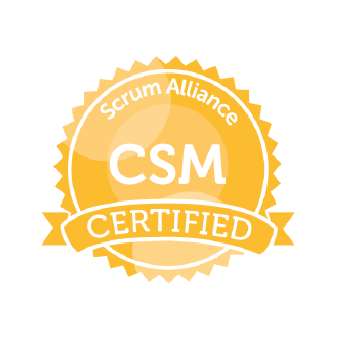 Early BirdCertified ScrumMaster (CSM)Original price was: €1,295.00.€1,095.00Current price is: €1,095.00. (excl. VAT)
Early BirdCertified ScrumMaster (CSM)Original price was: €1,295.00.€1,095.00Current price is: €1,095.00. (excl. VAT) -
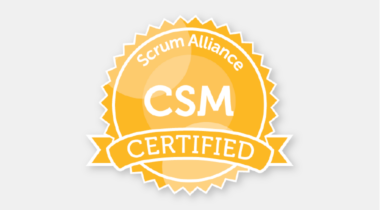 Certified Scrum Master (CSM) Training 26.-27. June 2024€1,295.00 (excl. VAT)
Certified Scrum Master (CSM) Training 26.-27. June 2024€1,295.00 (excl. VAT) -
 Certified Scrum Master (CSM) Training 06.-07. May 2024€1,295.00 (excl. VAT)
Certified Scrum Master (CSM) Training 06.-07. May 2024€1,295.00 (excl. VAT) -
 Certified Scrum Master (CSM) Training 18.-19. March 2024€1,295.00 (excl. VAT)
Certified Scrum Master (CSM) Training 18.-19. March 2024€1,295.00 (excl. VAT) -
 Certified Scrum Master (CSM) Training 04.-05. December 2023€1,295.00 (excl. VAT)
Certified Scrum Master (CSM) Training 04.-05. December 2023€1,295.00 (excl. VAT) -
 Certified Scrum Master (CSM) Training 16.-17. October 2023€1,295.00 (excl. VAT)
Certified Scrum Master (CSM) Training 16.-17. October 2023€1,295.00 (excl. VAT)
